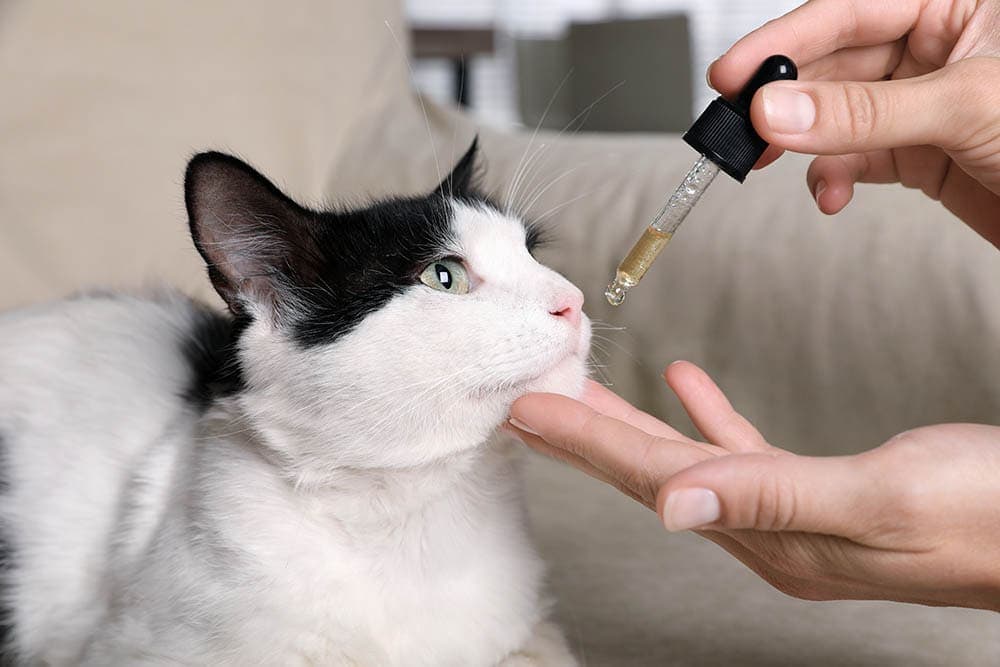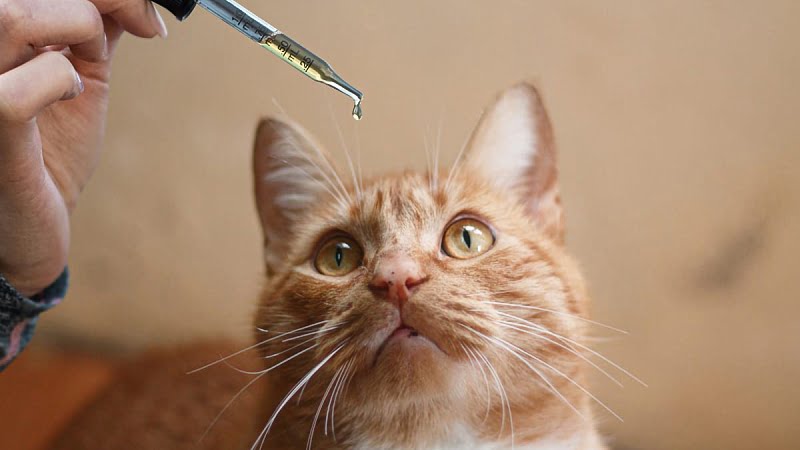Hemp oil can significantly help in improving your cats’ general health. Otherwise, your pet may be missing out on a lot.
It isn’t surprising that nowadays, many wonder how to use hemp oil for cats, given that more individuals are turning to cannabis as a natural cure for their health problems. And scientific studies have consistently demonstrated the plant’s good influence on inflammation and other diseases.
However, as well-studied as cannabis’s effect on people may be, no official, extensive scientific studies of its influence on pets have been conducted.
What Does Hemp Oil Represent
When most people hear the word “hemp,” they cringe. Individuals routinely link hemp with marijuana and assume it might get you or your pets high. On the other hand, hemp oil is a non-intoxicating, naturally occurring chemical molecule that does not create emotions of intoxication.
Aside from the fact that it has no psychotropic properties, it has other excellent benefits. Hemp oil differs from hash oil that is extracted from the plant’s flower. Companies cold press hemp seeds to obtain oil from them. The result is an oil that ranges from transparent to deep green.
Hemp oil has been utilized as medicine for centuries. It was used to heal numerous diseases by the Chinese, Indians, and Middle Easterners about 1500 BC. Europeans began using hemp for its therapeutic benefits in the 1800s.
The hemp seed oil has considerable benefits for pets, just as it does for humans. The plant’s seeds are a superfood with a high concentration of vitamins, minerals, proteins, fibers, and vital fatty acids that can improve your cat’s wellbeing.
How Does CBD Work
All mammals have an endocannabinoid system, which plays an integral part in their overall health. The body produces endocannabinoids, similar to cannabinoids found in the cannabis plant. They travel throughout the blood and bind to cells all over the system to transmit information and instructions telling it what’s going on and how to react. These endocannabinoids have an impact on almost every biological process.
That is how CBD functions as a substitute for these endocannabinoids. When they aren’t sending the commands we need them to, or when the body is under more stress than usual, CBD can assist in restoring the equilibrium.
CBD for Cats
Cats, like humans, have an endocannabinoid system. So it’s not strange to believe that CBD can help them with issues like stress, anxiety, inflammation, and pain in the same way that it’s helping the rest of you. And there is plenty of empirical evidence to back up the theory, ranging from stories about unpettable cats becoming snuggle balls of fur to reports of arthritic felines regaining their verve.
Still, we can’t be sure because there haven’t been any long-term studies (just yet) to validate our assumptions. We know that hemp oil appears equally safe for cats and dogs. One study discovered that high doses could induce adverse effects, but THC contamination was most likely causing it. The same study discovered that CBD was absorbed and excreted differently in cats than in dogs, which may necessitate adjusting the dosing for cats.
Safety
Although CBD has received positive feedback from animal owners, one major issue with its use for cats is an almost absolute absence of regulatory monitoring. Because of this lack of regulation, low-quality CBD products are widely available. Another study examined hemp products and discovered that many contain little, if any, CBD. Or they contain more of it than is stated on the label.
According to observations from vets and animal parents, CBD appears to be highly safe for cats. Some owners complain that their pets become tired or have upset stomachs when given massive amounts of CBD, although these issues disappear when hemp oil is stopped or the dose is reduced.
Dosage
We advise estimating the appropriate hemp oil intake based on your cat’s body weight. Although there are no official CBD dosage guidelines at this time, based on their size is a decent place to start. You’ll eventually want to adapt it to your cat’s taste. Just keep in mind that how much you feed them is also determined by their tolerance, age, or condition.
We suggest giving your cat 0.25mg of CBD per pound of body weight for a standard dose. For a 10-pound cat, the equivalence of 2.5mg of CBD in oil drops is recommended. Estimate 0.5mg of CBD per pound of body weight for a higher dose. You might feed the same 10-pound cat 5mg of CBD for a more concentrated, potent dose.

How to Use Hemp Oil for Cats
Most people typically pour the oil into their cat’s food bowl and mix it with a small amount of their food. Most kitties enjoy the taste of the oil so much (when combined with sardine especially). Though it’s simple, we don’t suggest giving your cat the oil sublingually because they don’t like having their lips interfered with.
We observed that hemp oil dissolves best when not consumed on a full stomach. Watch how the cat reacts throughout the day and repeat the same process at night. Try it for a week, and then gradually raise the dosage until your pet responds positively.
Because each cat is unique, experiment with how you provide the oil to your kitten buddy. All that is important is that the oil makes them feel more comfortable and happy.
Conclusion
When shopping for CBD oil for your cat, search for a full-spectrum product. It is also good to look for a CBD oil tincture with good fats as the carrier oil (the oil into which the CBD is incorporated to make the tincture), such as natural extra virgin olive or coconut oil. According to research, taking CBD with a healthy fat increases its bioavailability since it aids the cannabidiol in avoiding first-stage metabolization in the liver.
All in all, CBD is an excellent option for your cat’s current health and wellness routine, but if you have any concerns about adding anything to your pet’s regular diet, don’t be afraid to contact your veterinarian. We’re confident a doctor will know exactly how to use hemp oil for cats and other pets as well.
